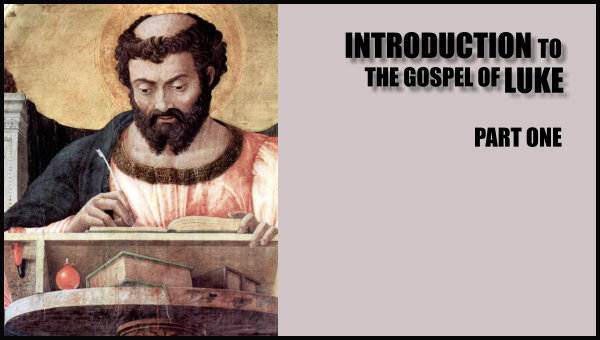By Tyson Thorne

Introduction, The Return of Yahweh, 1.5-4.13
The births of John the Baptist and Jesus occurred under the rule of Herod the Great. It is commonly accepted that his reign extended from 37 BC until his death in 4 BC. The date of his death is fixed to a solar eclipse that occurred that year (ancient historian Josephus tells us Herod died the same year as the eclipse). Recently some scholars have decided the true date should be affixed to a partial eclipse occurring in 1 BC, meaning the birth of Jesus would be closer to the date suggested by map makers of old. There is no way of determining this exactly unless or until other documentation is unearthed. Either way, the birth of John and Jesus occurred near the end of the pre-Common Era.
We are introduced to Zechariah, a priest and the father of John the Baptist. He was of the order of Abijah, one of the priestly divisions mentioned in 1 Chronicles 24. At its founding three men (who were descended from the first priests of Israel) divided the priesthood into 24 groups to carry out assigned responsibilities. In verse 10 we see the order of Abijah is eighth on the list. His wife is Elizabeth, a cousin of Jesus’ mother, was also of the line of Aaron (Israel’s first priest appointed by Moses). Along with these historic details Luke informs us that their standing with God was one of righteous obedience, and that they had no children due to Elizabeth’s inability to conceive.
All these details are background for the story that is next told. While the order of Abijah was on duty, Zechariah was chosen by lot (believed to be something like dice that assisted religious authorities in determining God’s will) to tend the inner temple and the Holy of Holies. From other sources we know that common practice was to tie a rope around the priest’s waist while the other end was held by one outside the temple to ensure that, should the priest make a misstep and be killed his body could be pulled out without endangering the lives of other members of the order. We are not told if Zechariah adhered to this practice, but the others were troubled by how long Zechariah was inside the inner temple area. His tardiness was not the result of his death, however, but by an angel who had a prophetic message to deliver.
From other gospels we know this angel as Gabriel, whose last appearance was to communicate prophecy to Daniel. Clearly the message was one of great importance. Gabriel was standing near the incense alter, apparently invisible at first before materializing in Zechariah’s presence. As you can imagine this had a remarkable effect on the priest, who shook with fear likely thinking he would be killed. As is common with angels, Gabriel’s first words were, “Do not be afraid.” He then explains that Zechariah will father a son who will be great in the Lord and will help swing Israel back to a right standing with God. If this were not enough, he says that John (he told Zechariah to name the boy John) would have the spirit and power of Elijah. This is interesting as Jesus also draws this parallel saying of John, “And if you are willing to accept it, he is Elijah, who is to come” (Matthew 11.14).
Was John the second coming of Elijah? It should first be noted that the Bible does not teach reincarnation. In this regard, the “spirit” of Elijah does not refer to his soul, but rather the style and ministry of Elijah. This means that John was not physically Elijah (bodily raised as the Jews expected) nor possessing the soul of Elijah as some Hindus and New Agers have argued. How do we know this to be true? For starters, Elijah makes an appearance in chapter nine of the Gospel of Luke, along with Moses on the Mount of Transfiguration. There is no indication here that he is John or that John is Elijah. Furthermore, the Gospel of John records that John the Baptist denies being Elijah (John 1.21). But perhaps the most convincing proof, and one that makes sense of both Gabriel and Jesus’ remarks, comes form 2 Kings:
When they had crossed over, Elijah said to Elisha, “What can I do for you, before I am taken away from you?” Elisha answered, “May I receive a double portion of the prophetic spirit that energizes you.” (2 Kings 2.9)
This request was granted, but notice the language used here. Elisha asked for the same spirit and power of Elijah, only doubled, and received it! We are to understand that Elijah, a prophet of the desert who wore a camel skin tunic and a belt around the waist and who called the nation of Israel to repentance is like John the Baptist, also a prophet of the desert who wore a camel skin tunic and a belt around the waist and who called Israel to repentance. They held the same office, and went about the same ministry in the same fashion empowered (or “energized”) by the same Holy Spirit. As such John fulfilled the prophecy of Malachi 4.5-6 and Isaiah 40.3, but Elijah (who never physically died) will still return (likely as one of the two prophets mentioned but not named in Revelation).
We’ll pick up the rest of this story next time.
|
|
